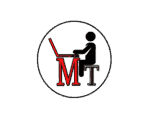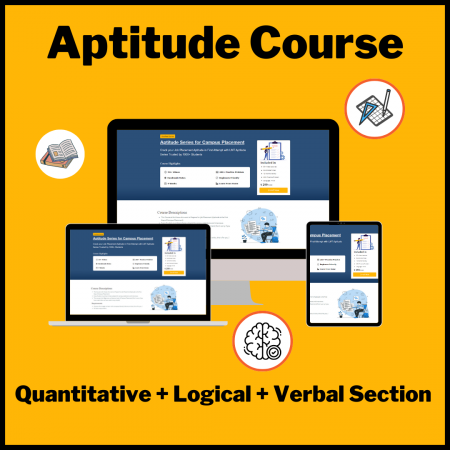DC+HMI Bundle
₹1,999.00

-
Human Machine Interaction
- HMI(human machine interaction) (Module 1)
- Human Centric Design (Module 1)
- Fundamental Principle of Interaction (Module 1)
- 3 Level of Processing(Visceral ,Behavioral , Reflective) in Human Machine Interaction (Module 1)
- Norman Seven Stages of Action (Module 1)
- Brief History Of HMI (Module 1)
- Screen Design History (Module 1)
- Reasoning And Types (Module 1)
- Problem Solving Problem Space Tree (Module 1)
- Bitmap Display (Module 1)
- Display Technologies (Module 1)
- Types Of Memory (Module 1)
- Processing And Networks (Module 1)
- Ergonomic (Module 1)
- Interaction And Model (Module 1)
- Paradigms Introduction (Module 1)
- Human characteristics which are considered while designing the user interface (Module 2)
- Human consideration in design. (Module 2)
- Human Interaction speeds (Module 2)
- Goal directed Design (Module 2)
- Accommodating Users / Three categories of the users (Module 2)
- Interaction Design Process (Module 2)
- GUI ( Graphical user interface ) Full concept (Module 3)
- Advantages and Disadvantages of Graphical System (GUI) (Module 3)
- GUI vs Webpages (Module 3)
- Factors to be considered for GUI (Module 3)
- Direct & Indirect Manipulation (Module 3)
- Statistical Graphics (Module 3)
- Web User Interface (module 3)
- Merging of Graphical Business System and the Web (module 3)
- Principle of User Interface Part 1 (module 3)
- Priniciple Of User Interface Part 2 (module 3)
- Screen design (Module 4)
- Organizing and ordering screen element (Module 4)
- Screen Navigation And Flow (Module 4)
- Visual Pleasing Component (Module 4)
- Amount Of Information (Module 4)
- Information Retrival on Web (Module 4)
- Statistical Graphics (Module 4)
- Design an KIOSK (HMI most important sum) (Module 5)
- Design Mobile App and Portal Sum (Most Important for 20 Marks in HMI) (Module 5)
- Mobile Ecosystem Part-01 (module 5)
- Mobile Ecosystem Part-02 (module 5)
- Mobile Applications Part-01 (Module 5)
- Mobile Applications Part-02 (Module 5)
- Mobile Information Architecture Part-01 (Module 5)
- Mobile Information Architecture Part-02 (Module 5)
- Mobile 2.0 (Module 5)
- Menus and Types of Menus (Module 6)
- Keyboard Accelerator (hot Keys ) (Module 6)
- Introduction to Windows and its Characteristics (Module 6)
- Types of Components in Windows Part 1 (Module 6)
- Types of Components in Windows Part 2 (Module 6)
- Presentation Style in Windows (Module 6)
- Types of Windows Part 1 (Module 6)
- Types of Windows Part 2 (Module 6)
- Word (Module 6)
- Sentences and messages Part 1 (Module 6)
- Sentences and messages Part 2 (Module 6)
- Text and Text for Webpages (Module 6)
- Icons (Module 6)
- Colors (Module 6)
- Short-term & Long-Term Memory (Extra)
- Feedback & Guidance (Extra)
- Colors (Extra)
- Response Time (Extra)
- Device-Based Controls (Extra)
- Screen-Based Controls (Extra)
- Reading is Important (Module 7)
- Gestalt Principles Human machine interaction (Module 7)
- Interview Techniques for Qualitative Research (Module 7)
- Qualitative and Quantitative Research (Module 7)
- What is Persona and Its Step to Create a Persona (Module 7)
-
Human Machine Interaction Notes + MCQs + Viva Question
-
Extra Human Machine Interaction Notes
-
Distributed Computing
- Introduction to Distributed Computing (module 1 )
- World Wide Web (module 1 )
- Issues And Goals Of Distributed System (module 1 )
- System Model ( Architecture Model ) (module 1 )
- System Model (Fundamental Model ) (module 1 )
- Software Concepts Models of DS (module 1 )
- Client Server Model (module 1 )
- RPC Remote Procedure Call in Distributed System (module 2 )
- RMI Remote Method Invocation (module 2 )
- Stream-Oriented Communication (module 2 )
- Stream oriented vs Message Oriented (module 2 )
- Synchronization in Process Distribution System (module 3 )
- Cristian algorithm (module 3 )
- Berkeley Algorithm in Hindi in Process Distribution System (module 3 )
- Network time protocol (module 3 )
- Logical Clock in Distributed System (module 3 )
- Lamport’s Logical clock Algorithm in Distributed System (module 3 )
- Lam-ports Non Token Based Algorithm in Mutual Execution (module 3 )
- Vector Logical Clock Algorithm (module 3 )
- Ricart Agrawala Algorithm (module 3 )
- Suzuki Kasami Algorithm with Example (module 3 )
- Raymonds Algorithm (module 3 )
- Bully and Ring Election algorithm in Distributed System (module 3 )
- Resources management in Distributed System (module 4 )
- Desirable features of Global scheduling Algorithm (Module 4)
- Load Balancing vs Load Sharing (Module 4)
- Load Balancing Algorithm and Design Issues (module 4 )
- Load Balancing by harsh (module 4 )
- Load Sharing Algorithm with Design issues (Module 4)
- Data-Centric Consistency Model (module 5 )
- Client-Centric Consistency Model (module 5 )
- Introduction to network file system
- Network file system Full concept
- AFS (module 6 )
- Hadoop Distributed File System (module 6 )
- File Cache Scheme (module 6 )
- Introduction to Distributed File System (module 6 )
- Good features of Distributed File System (module 6 )
- File Accessing Models (module 6 )
- File Replication (module 6 )
-
Distributed Computing Notes + MCQs + Viva Question
-
Extra Notes of Distributed Computing
Distributed Computing + Human-Machine Interaction
DC+HMI Bundle
Human-Machine Interaction (HMI) is semester 8 subject of the final year of computer engineering in Mumbai University. Prerequisite for studying this subject is Web Technologies; Software Engineering; Experience in designing interfaces for applications and web sites. Basic knowledge of designing tools and languages like HTML, Java, etc.
Distributed Computing is semester 8 subject of the final year of computer engineering in Mumbai University. Prerequisite for studying this subject are Java Programming, Operating Systems, Computer Networks.
Human-machine interaction studies the design and use of computer technology focused on the interfaces between people (users) and computers. Researchers in the field of HCI observe the ways in which humans interact with computers and design technologies that let humans interact with computers in novel ways. As a field of research, human-computer interaction is situated at the intersection of computer science, behavioural sciences, design, media studies, and several other fields of study. The term was popularized by Stuart K. Card, Allen Newell, and Thomas P. Moran in their seminal 1983 book, The Psychology of Human-Computer Interaction, although the authors first used the term in 1980 and the first known use was in 1975. The term connotes that, unlike other tools with only limited uses (such as a wooden mallet, useful for hitting things, but not much else), a computer has many uses and this takes place as an open-ended dialogue between the user and the computer. The notion of dialogue likens human-computer interaction to human-to-human interaction, an analogy which is crucial to theoretical considerations in the field.
Course Objectives of the subject Human-Machine Interaction At the end of the course, students will be able to learn the foundation of human-machine interaction. Understand the importance of human psychology in designing good interfaces. Will be aware of mobile interaction design and its usage in the day – to – day activities. Understand various design technologies to meet user requirements. Encourage to indulge in research in Machine Interaction Design. Outcomes of the course Human-Machine Interaction are as follows the learner will be able to Identify User Interface (UI) design principles. Analysis of effective user-friendly interfaces. Apply Interactive Design process in real-world applications. Evaluate UI design and justify. Create an application for the social and technical task.
Suggested Texts Books for Human-Machine Interaction by Mumbai University are as follows Alan Dix, Janet Finlay, Gregory Abowd, Russell Beale, ―Human-Computer Interaction‖, 3rdEdition,Pearson Education, 2004. Wilbert O. Galitz, ―The Essential Guide to User Interface Design‖, Wiley publication. Alan Cooper, Robert Reimann, David Cronin, ―About Face3: Essentials of Interaction design‖, Wiley publication. Jeff Johnson, ―Designing with the mind in mind‖, Morgan Kaufmann Publication. Donald A. Normann, ― Design of everyday things, Basic Books; Reprint edition 2002. Brian Fling, ―Mobile Design and Development‖, First Edition, O‘Reilly Media Inc., 2009. Suggested Reference Books for Human-Machine Interaction by Mumbai University are as follows Rogers Sharp Preece Interaction Design: Beyond Human-Computer Interaction, Wiley. Guy A. Boy ―The Handbook of Human-Machine Interaction, Ashgate publishing Ltd. Kalbande, Kanade, Iyer, ―Galitz‘s Human Machine Interaction‖, Wiley Publications.
Distributed-Computing is a field of computer science that studies distributed systems. A distributed system is a system whose components are located on different networked computers, which communicate and coordinate their actions by passing messages to one another from any system. The components interact with one another in order to achieve a common goal. Three significant characteristics of distributed systems are concurrency of components, lack of a global clock, and independent failure of components. Examples of distributed systems vary from SOA-based systems to massively multiplayer online games to peer-to-peer applications. A computer program that runs within a distributed system is called a distributed program (and distributed programming is the process of writing such programs). There are many different types of implementations for the message passing mechanism, including pure HTTP, RPC-like connectors and message queues. Distributed computing also refers to the use of distributed systems to solve computational problems. In distributed computing, a problem is divided into many tasks, each of which is solved by one or more computers, which communicate with each other via message passing.
Course Objectives of the subject distributed computing is to provide students with contemporary knowledge in distributed systems. To equip students with the skills to analyze and design distributed applications. To provide master skills to measure the performance of distributed synchronization algorithms. Distributed Computing course outcomes are as follows on successful completion of course learner will be able to Demonstrate knowledge of the basic elements and concepts related to distributed system technologies; Illustrate the middleware technologies that support distributed applications such as RPC, RMI and Object-based middleware. Analyze the various techniques used for clock synchronization and mutual exclusion. Demonstrate the concepts of Resource and Process management and synchronization algorithms. Demonstrate the concepts of Consistency and Replication Management. Apply the knowledge of Distributed File System to analyze various file systems like NFS, AFS and the experience in building large-scale distributed applications.
Prepare For Your Placements: https://lastmomenttuitions.com/courses/placement-preparation/
Youtube Channel: https://www.youtube.com/channel/UCGFNZxMqKLsqWERX_N2f08Q
Follow For Latest Updates, Study Tips & More Content!
Instagram / lastmomenttuition
LinkedIn / Last Moment Tuitions
Twitter / lastmomentdost
Course Features
- Lectures 126
- Quizzes 0
- Duration 50 hours
- Skill level All levels
- Language English
- Students 15
- Certificate No
- Assessments Yes


![SEBI GRADE A – IT 2025 SEBI GRADE A 2025 – IT [ Phase 1 + Phase 2 ]](https://lastmomenttuitions.com/wp-content/uploads/2025/12/SEBI-GRADE-A-IT-2025-450x450.png)
